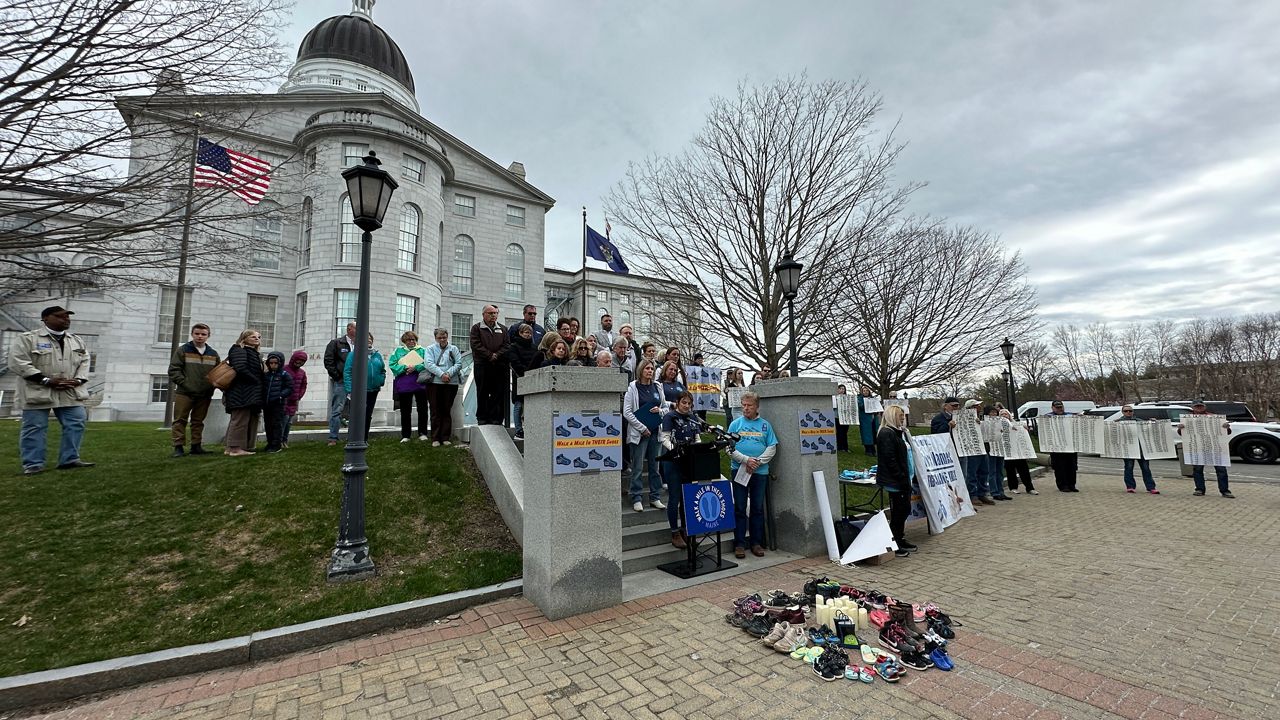Child welfare advocates rallied at the State House Tuesday to demand reforms in the state system dedicated to protecting children from abuse, neglect and death.
Walk A Mile in Their Shoes, a nonprofit started by former state Sen. Bill Diamond, called for more transparency in the wake of dozens of child deaths in recent years.
“We often say how terrible events are the catalyst for change,” said Emily Small, a social worker. “How much more terrible does it have to get for change to occur?”
In the last two years, 54 children who had contact with the state child welfare system died, following a record set in 2021 with 34 deaths, the advocates said.
As the event got underway, the Maine Department of Health and Human Services announced that it has joined the National Partnership for Child Safety, “a quality improvement collaborative with a mission to improve child safety and prevent child maltreatment fatalities.”
“We look forward to the opportunity to work across child welfare jurisdictions nationwide to build on the gold standard of evidence-based, quality improvement efforts to reduce child maltreatment and improve outcomes for children and families involved with child welfare,” Bobbi Johnson, director of the Office of Child and Family Services, said in a statement.
The rally comes just weeks after lawmakers failed to pass legislation to create a separate Office of Child and Family Services, a move designed to get the agency out from under the larger Department of Health and Human Services umbrella.
The legislation, sponsored by Sen. Jeff Timberlake (R-Turner), sought to create a cabinet level position that he believed would have brought more accountability to the office.
Diamond, a Democrat who sponsored the same legislation during his term in office, expressed frustration Tuesday that Timberlake’s bill passed the Senate but never came up for a vote in the House.
And he acknowledged that with the legislative session nearly complete, lawmakers will not consider changes again until January.
But he also expressed optimism, saying that despite legislative inaction, his organization wants to work with DHHS to make things better.
“We’re here to help,” he said. “We’re not here to continue to point fingers. To this point, there hasn’t been a willingness to let people in. The culture is broken. We can fix this, but we can’t fix it if one side is not willing to hear all voices.”
In December, the group released a report that found caseworkers charged with protecting Maine’s most vulnerable children lack adequate training, face unrealistic expectations and need a support network to do their jobs well.
The report also highlights difficulties faced by caseworkers, foster parents and children. It criticized the department for what it calls an “excessive focus on family reunification” and incomplete safety plans.
The report’s release followed the Nov. 27 resignation of Todd Landry, who faced continued criticism from lawmakers concerned about the number of child deaths that have come after the office had contact with the families.
In January, Gov. Janet Mills appointed Johnson to the top job.



